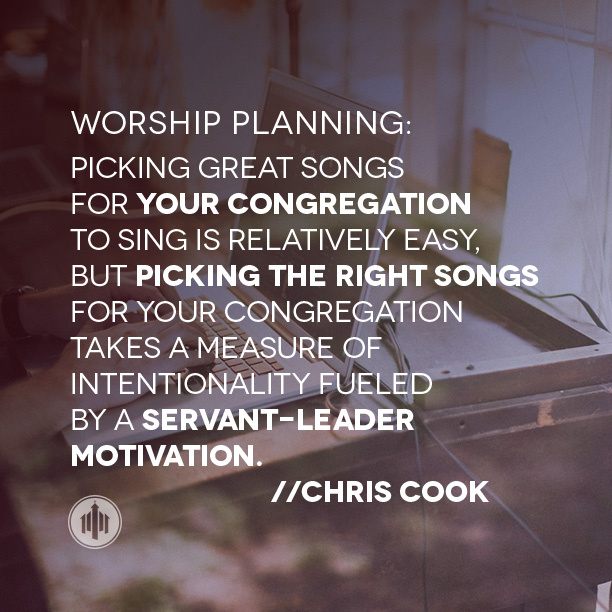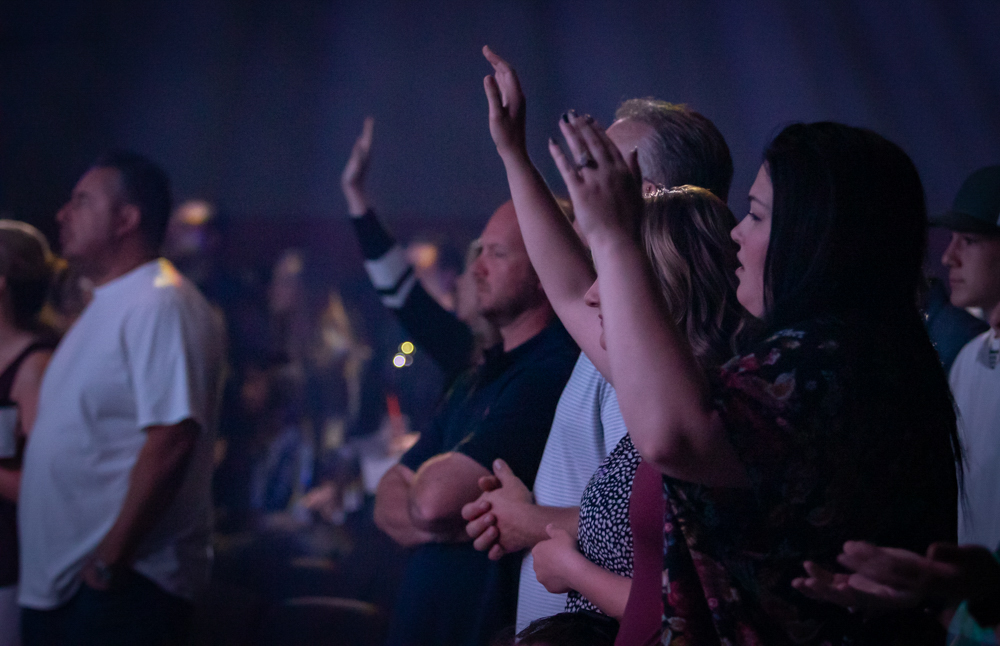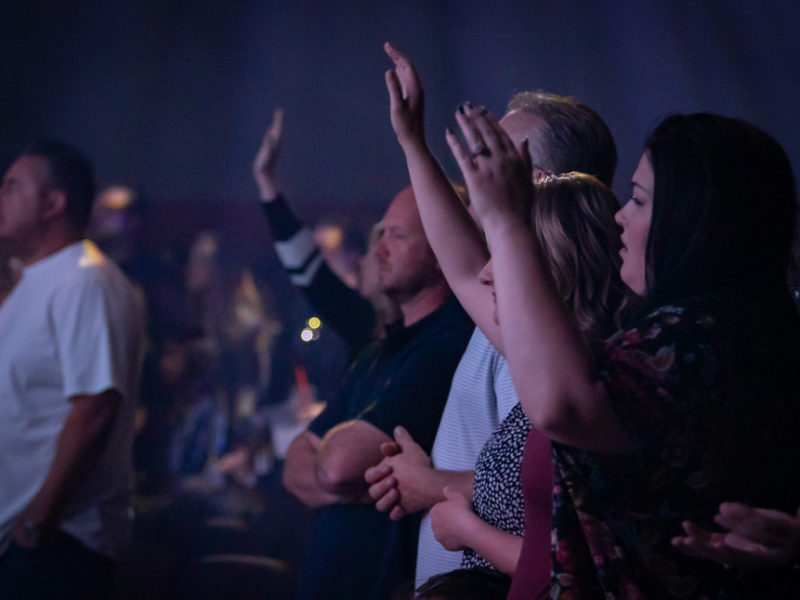Music is a powerful force that stirs the hearts of people like nothing else can. Therefore, it is one of the most important expressions of worship, especially in the local church. But in surveying churches across the country in the last few years, I’ve noticed that less people are quick to participate in singing, and instead, stand in observation of the worship team on stage as spectators of a concert. While there are several thoughts surrounding this issue, I believe one of the most pronounced is the need for worship leaders work better at picking the right songs for their congregations.
Picking Great Songs vs. Picking the “Right” Songs
You see, picking great songs for your congregation to sing is relatively easy, but picking the right songs for your congregation takes a measure of intentionality fueled by a servant-leader motivation. Why? Because the end goal of our times of collective worship is that the songs would simply be tools—conduits—to unify the Body in spirit and purpose; and that purpose is to magnify the name Jesus.
And it all starts with loving the Church.
Style & Form
The Church, you see, isn’t the building, it’s the people. As worship leaders, we have a distinct privilege to pastor our congregations in a unified song as worship unto the Lord. And as worship leaders, we have the responsibility to lead songs that resonate the sound of Heaven on here earth. Songs of faith, hope, and praise unto the name of Jesus. The challenge, however, is that we manage the tension of creating (or emulating) fresh style and sound while never forgetting that we mustn’t lose the average congregational singer in the dust in pursuit of our artistic desires and creative inspiration.
I believe this is best observed when ambitious, talented, hungry worship leaders and music directors (like us) hear a “sound” on a worship album or in a conference and want that to translate in our church or meeting, truly because of the Spirit-soaked moments that inspired us in the first place. And while that is an honest, noble desire, we must be ever aware to not strive to create a “moment” that happened to be unique to the time in which it was captured. I’ll give you one example in particular: spontaneous worship.
I love spontaneous worship, especially on albums. It reflects an in-tune heart coupled with a prophetic song, founded upon God-given musicianship. But I’ve also been in meetings where the congregation isn’t familiar with those moments and has been left alone so-to-speak, as the worship leader, caught-up in his/her personal moment of worship, proceeds without leading the church. Was the moment wrong or disingenuous? I highly doubt it. But the point is that we must be pastoral in our leading, which means, as a well-known worship leader told me 15 years ago, “Chris, you keep one eye on Jesus and the other eye on the people.” The point is that some songs and some arrangements just don’t work for a congregation, and that’s okay!
Why? Because the essence of worship is so much more than a song. 
I’ll Bring Him More Than a Song
For the majority of my life, dynamic praise and worship has been a pronounced component of my upbringing and experience in church. Growing up, I learned that one of the greatest privileges of the Believer is to bring an offering of worship to the Lord (and I still believe that).
Today as a pastor, I regularly remind our teams to develop a personal history of worship unto the Lord outside the context of doing public ministry. And that’s my point. In my opinion, one of the fundamental misunderstandings regarding congregational worship is that the time in which it takes place is often viewed as a time to simply “sing songs.” Yet, to reduce the importance of worship unto the Lord to the act of “singing songs,” is to miss the point entirely. Music is a unifying expression of worship, but not the essence of worship, for worship in and of itself is a lifestyle.
In John 4:23-24 (AMP), Jesus, in speaking to the woman at the well, says, “A time will come, however, indeed it is already here, when the true (genuine) worshipers will worship the Father in spirit and in truth (reality); for the Father is seeking just such people as these as His worshipers. God is a Spirit (a spiritual Being) and those who worship Him must worship Him in spirit and in truth (reality).”
Two principles can be extrapolated from the text:
1.) Because God is Spirit, we must worship Him in Spirit.
2.) We must worship in truth.
Practically speaking, we must understand that the expression of worship through music connects our spirit to the Spirit of the Living God. This requires a direct act of faith where we make the intentional, engaged choice to worship Him even if we don’t rationalize its benefit or importance. As Scripture states, it is the “sacrifice” of praise.
Hebrews 13:15 (AMP) illustrates this point: “Through Him, therefore, let us constantly and at all times offer up to God a sacrifice of praise, which is the fruit of lips that thankfully acknowledge and confess and glorify His name.”
In other words, the perfect sacrifice is when we allow our lips to declare words of praise and faith, even when we don’t feel like it. Praise is powerful! When we praise and worship, we are essentially aligning our confession with His! Psalm 47 opens brilliantly as it exemplifies this point: “O CLAP your hands, all you peoples! Shout to God with the voice of triumph and songs of joy!”
Undergirded with these principles and motivated with a pastor’s heart, ask yourself the following six questions when planning songs for congregational worship:
Six Questions to Ask Yourself When Planning Songs
1.) Are the lyrics consistent with Scripture and do they magnify Jesus? Personally, I love easy-to-learn anthems that speak about the finished work of Jesus.
2.) Do the songs invoke hope and faith in the life of the congregation?
3.) Are the melodies easy and accessible to be sung by any age and even the least musical person?
4.) Are the musical hooks memorable and do they aid in creating resonance with the congregation?
5.) Do the songs support the preached word and theme of your local church?
6.) Can the songs be executed skillfully and with excellence by the team?
Most musicians can write a song, but there are songs that come only from the “well-worn path to the Secret Place.” I pray that our songs—modern hymns—are new songs…prophetic songs…songs of praise and unity…peace and hope…righteousness, mercy, and strength…songs of everlasting love and healing…songs that rise as fragrance unto our God Himself.



